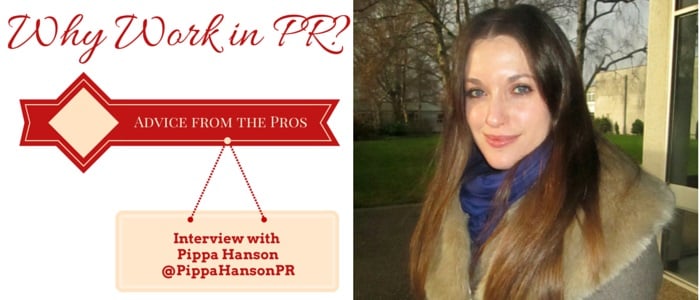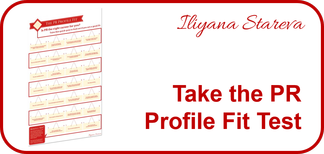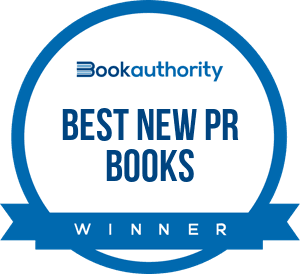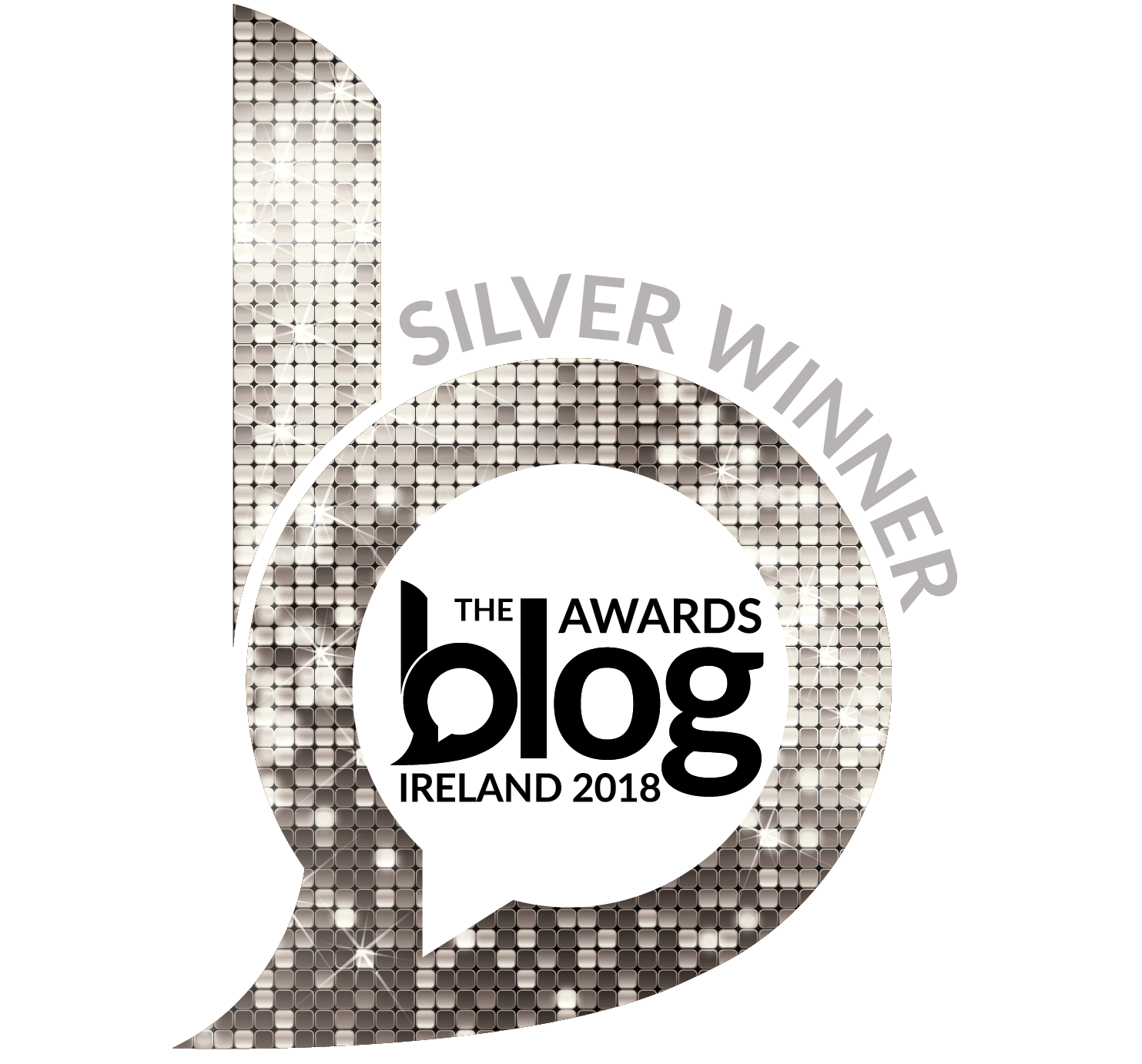
Today, we continue with the second interview of my blog series, asking PR practitioners "Why do you want to work in PR?" and inviting them to share their experiences and advice around the profession. (If you missed the first interview with Richard Bailey, you can read it here.)
This time I got in touch with my first PR mentor – Pippa Hanson. I met Pippa when I was doing my first PR internship. She taught me so much when I was just getting into PR – from how to craft the perfect press release to how to pitch it to a reporter and secure coverage.
Pippa has had an interesting career so far and I hope you enjoy reading more about it in this PR interview.
Why Work in Public Relations: Interview with Pippa Hanson
1. As a short introduction, can you tell us a little bit about you and what you do?
I’m a PR consultant with in-house and agency experience, working with clients including Specsavers, English Heritage and the British Equestrian Federation.
2. Why did you choose a career in PR?
The world of PR is one of the most fast-moving, exciting and challenging industries I can think of. Not only do you have to juggle the expectations of your clients, but you also have to ensure that you meet internal and media deadlines, multi-task your way through numerous client accounts, build reputations by generating regular media coverage for your clients, all whilst trying to get your head around sectors that you never thought you’d ever find yourself reading about and keeping up-to-date with the latest news and views from around the globe. Boredom is simply not an option, as there is always something to do, which is exactly why I was keen to learn more.
3. How exactly did you get into PR and what work experiences have you gathered so far?
I graduated from university with a good degree and portfolio brimming with broadcast and print journalism experience, but I was unsure whether this was a route I wanted to take. I contacted the head of the police press office at Gloucestershire Constabulary, as I wanted to learn more about in-house PR; following an initial conversation and interview, I was offered a temporary position as an Assistant Press Officer. I was hooked after the first day, as I enjoyed the fast pace of work, undertaking large volumes of writing and liaising with journalists on a daily basis. I knew then this was the career for me. I have since worked for both small and international PR agencies, with experience ranging from large consumer brands to B2B campaigns and government projects.
4. What is the difference between in-house and agency work?
In-house is great if you’re particularly passionate and knowledgeable in one sector, and want to focus on a specific area. But don’t be fooled into thinking it’s an easy ride, as you’re the first in the firing line by stressed journalists who want a last-minute comment for their deadline in a matter of minutes or are constantly chased by the management team for an annual coverage summary for an important presentation.
Agency life is similar in many ways, but your ability to quickly pick up new industries and develop excellent time management skills will certainly put you in good stead for running a strong PR account. You’re able to try your hand at almost everything, such as research, writing, talking to the media, client liaison, pitching, (hopefully) winning new business, managing events and not forgetting the dull admin that everyone has to look after – including keeping the dreaded timesheets updated!
5. What advice would you give to students considering working in PR?
- Proofread everything before hitting send. I have seen people throw CVs into the bin if they have spotted a rogue apostrophe in GCSEs, so make sure there are no glaring or hidden errors in your work before sending it onto someone else; otherwise the grammar police will spot it, which could mean the difference between securing a job and not.
- It’s essential to keep up-to-date with the news agenda and latest social media trends, in order to stay ahead of the curve and recommend new strategies or stories to your clients
- This sounds like a stuck record, but getting experience is essential. Even if you’re struggling to secure a work experience placement, you can still work on your own personal brand or undertake voluntary work for a charity; they’ll be glad of the support and you’ll be creating a portfolio in no time at all!
PS from Iliyana: You can follow Pippa at @PippaHansonPR on Twitter or connect with her on LinkedIn here.
Wondering why work in PR? Try the PR Profile Fit Test to find out if PR is the right career for you! Download it for free by clicking on the image below!







